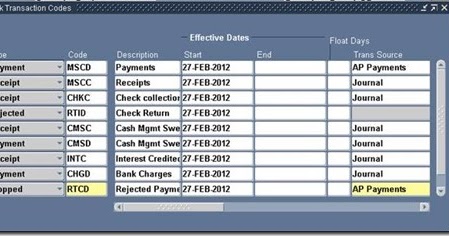
Wherever money is being handled and transferred between two parties, there’s always the risk of fraud. And it’s not just theft — you also need to consider your employees’ sensitive data and ensure you’re complying with local data privacy laws. Outsourcing, on the other hand, means handing over your entire payroll process to another company.
Compliance across borders
Global payroll job cost sheet definition providers use specialist software and are able to automate many processes, creating efficiencies and cost savings that just aren’t possible if you’re running your global payroll manually, in-house. Payroll co-sourcing is a type of payroll outsourcing in which a third-party payroll provider and employees of the business share payroll processing responsibilities. That way, a small business is getting the best of both worlds, allowing them to selectively decide what aspects of payroll they do themselves and which they’d rather have done by the experts.
Let us help streamline the way you manage HR.
A solid understanding of payroll outsourcing’s pros and cons, along with accurate information on existing payroll management costs, can offer helpful guidance. Hiring a third-party service provider means you’ll need to share 8 considerations for a new major gifts campaign your workers’ information. Before you hire a payroll provider, make sure to have a proper DPA in place, if necessary, to avoid potential legal issues in case the outsourcing service mishandles the payroll data. Most payroll service providers stay up to date with the latest technology because it allows them to take their service to the next level and provide the best for their clients.
Fewer payroll mistakes
Once the pay amounts for each employee are calculated, the physical checks may need to be printed, signed, and distributed. Some employees are likely to have direct deposit, so those amounts must be verified and processed electronically, but pay stubs still must be made available to the employees. In addition, these records must be securely maintained for tax and reporting purposes. Learn everything you need to know about outsourcing payroll for your employees. A company’s core business functions—whatever it does to generate revenue—are understandably its main priority. It encompasses a variety of tasks, not all of which are necessarily carried out by the same entity.
Common features to look for in payroll outsourcing services
Payroll regulations are constantly changing across federal, state, and local lines. Payroll providers maintain exhaustive knowledge of these laws, minimizing a business’s compliance risks and penalty exposure. When you choose the right HR solution, outsourcing can be a cost-effective option.
- For the optimal combination of HR expertise, return on investment (ROI), and integrated technology, partnering specifically with a PEO emerges as an ideal choice for payroll outsourcing.
- Business owners who place a high value on their time and peace of mind often end up outsourcing payroll.
- When you partner with a PEO, all required payroll tax returns and payments are handled end-to-end.
- In addition to running payroll, full-service providers typically help with tax reporting, regulatory compliance, data security and unemployment claims.
Allowing a third party to direct company funds and manage highly sensitive information may once have been unthinkable. Much of the payroll process, however, involves routine tasks and follows established guidelines, making it possible to delegate responsibilities to trusted partners without relinquishing decision-making authority. It also includes managing information relevant to the tax process such as health insurance and workers’ compensation claims. Having an international team increases innovation, creativity, and diversity—but it also complicates payroll management.
Payroll can be a complex, time-consuming process — especially if you have employees in multiple locations. There are multiple laws to comply with, tax edicts to follow, and a lot of data to manage. This guide is intended to be used as a starting point in analyzing an employer’s payroll obligations and is not a comprehensive resource of requirements. It offers practical information concerning the subject matter and is provided with the understanding that ADP is not rendering legal or tax advice or other professional services.

Working with a global payroll provider that has experience with international payroll laws can reduce that risk, which could otherwise lead to fines and penalties that cost hundreds of thousands of dollars. A high-quality payroll outsourcing service provides you with a suite of features for running payroll efficiently. Simple outsourcing options allow you to manage payroll data from a phone or desktop application, while higher-value options allow you to connect directly with expert support. Rather than an in-house payroll or HR professional, team manager, or small business owner handling payroll themselves, a third party takes care of the logistics. When choosing a payroll outsourcing provider, it’s important to remember what’s at stake.
In the early days of strategic outsourcing, companies were most comfortable hiring away low-skill tasks distant from sensitive business areas. Nowadays, many companies do the opposite and outsource critical functions such as customer service and money-management tasks. This has grown to include many activities normally performed by administrators or human resources departments—including payroll duties. If a provider handles payroll data for employees in the European Union (EU), they have to meet General Data Protection Regulation (GDPR) standards. Your provider should also have a data processing agreement (DPA), which outlines how the parties will process and store your data in compliance with the GDPR.
Outsourcing what is bookkeeping gives your business the chance to grow and scale until you’re ready to commit to the expense of in-house employees. Their experience and expertise are invaluable, and they will be able to spot and avoid potential problems before they happen. Alternatively, to make things easier again, you can simply partner with an all-in-one global HR provider, like Remote, and have everything under one roof. Let’s break down the costs and benefits of each, so you can determine what’s best for your company. When a company keeps everything internal, these types of risks tend to go down.

